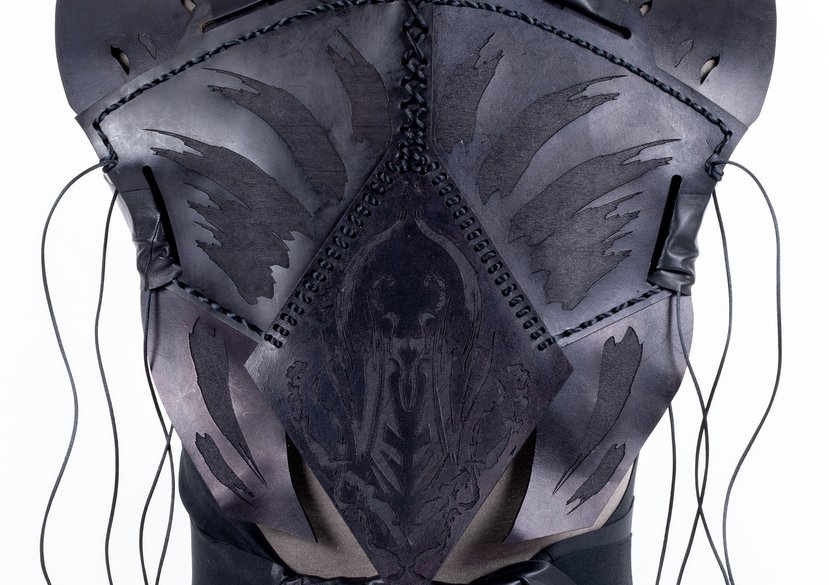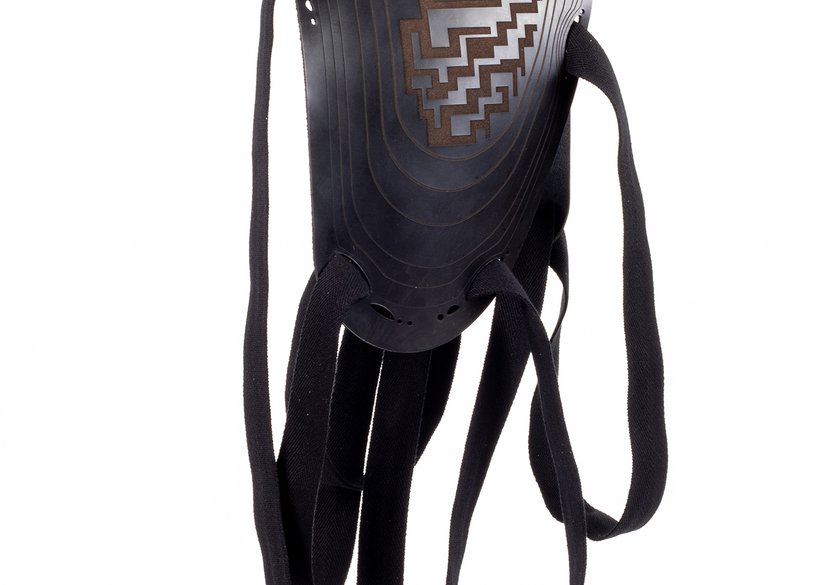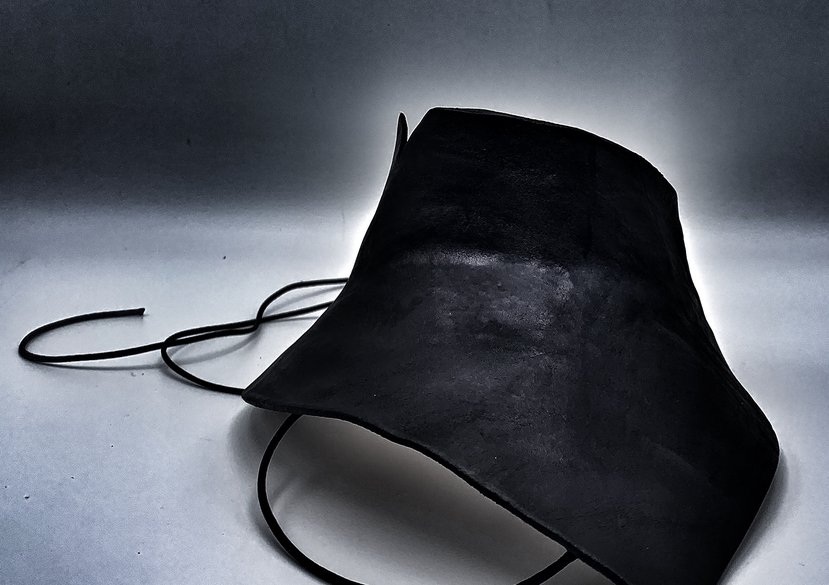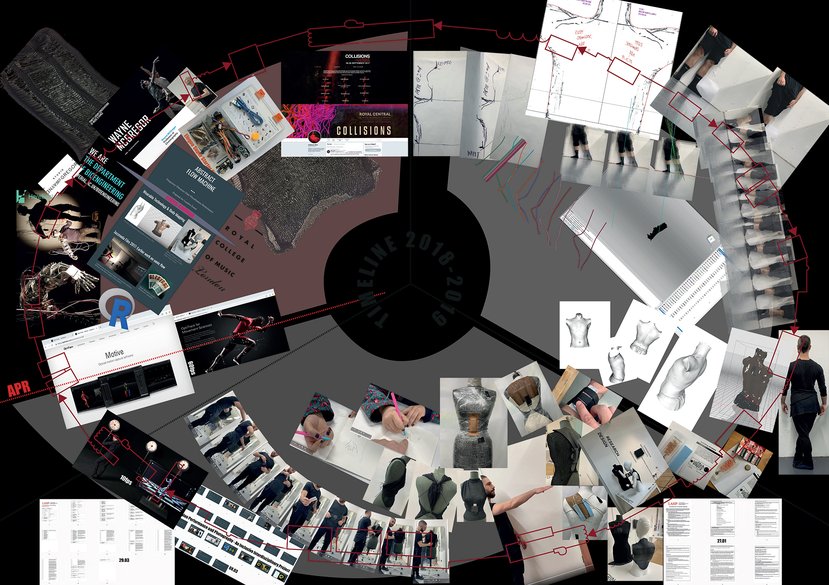
Algorithmically affected choreographic design
Technologies developed in Silicon Valley such as facial recognition and advanced online security can have significant perceived value. Yet user trust in the motivations behind the data collection methods used to strengthen the artificial intelligences (AI) that drive these applications has recently been declining. Consequently, some of the Big Tech companies have sought new AI applications to prolong economic gain from online user behaviours. One such approach is the adaptation of gait recognition technology to capture human identities through body movement.
Few other disciplines offer a sufficiently rich context to foster a human-led integration of these advancements than contemporary dance, particularly when considering technologies related to the body. This research therefore investigates how AI might affect the creation of choreography.
A practice-led qualitative approach to building a choreographic system that employs algorithms within its creative process has been developed via tests with expert participants (dance artists). Points of vibration are delivered by remote-controlled wearable technology embedded within garments worn by the participants. Alternating the impetus and sequence of vibrations between two dancers, and between an algorithm and the dancers could propose a valuable illustration of a creative process affected by artificial intelligence. Further trials and the performance of this system may increase the potential of having a measurable impact on societal perception of supercomputer motivations, and raise awareness of corporeal data collection techniques.
It is hoped that the documentation, analysis, and application of this research practice may present ways in which we could collegially integrate artificial intelligence in creative processes. The algorithm itself, system construction of wearable design may offer new knowledge, and could potentially propose methods towards a mutually beneficial rebalancing of the information economy for a more desirable future.
Keywords
choreography | artificial intelligence | wearable technology | vibration | system design
Key details
Area of expertise
Supervisors
Funding
-
COATS Foundation Trust
Sir Richard Stapley Educational Trust
David Kester & Associates full fees sponsorship
School of Design Research Fund, Research & Knowledge Exchange Fund, Research Office Conference Fund, Royal College of Art
Personal links
Gallery
More about Nigel
Biography
Creative practitioner and doctoral researcher investigating human interactions with technology.
Beginning recreationally, Nigel was classically trained in dance from the age of 6. He completed his university diploma in dance performance at Ryerson Theatre School under the direction of former National Ballet of Canada principal Nadia Potts before joining Winnipeg’s Contemporary Dancers. He then worked in the fashion industry for 15 years in Asia, Europe and the US before relocating to London to study at Kingston School of Art, graduating from the MA Fashion programme with Distinction in 2016. His fashion performances have been shown during London Fashion Week. His current PhD research at the Royal College of Art examines our relationship with machines through AI-affected choreography and wearable technology applications.
Degrees
MA Fashion (Distinction): Kingston School of Art, London
AAS Fashion Design (incomplete): Fashion Institute of Technology, NYC
Brevet d'Études Professionnelles: Couture flou et les industries connexes, Lycée Paul Poiret, Paris
3-yr University Diploma Dance Performance: The Creative School, Ryerson University, Toronto
Experience
Design Consultant & Researcher | NIGEL GUÉRIN-GARNETT | London & Paris
Visiting Tutor & Researcher | Royal College of Art | London
Head of Sector: Fashion, Retail & Design | DK&A | London
Design & Brand Director | Saks Incorporated | New York
Senior Designer | Hickey Freeman & Hart Schaffner Marx | New York
Product Development Manager | Trend&See | Paris
Designer | Laclos | Paris
Textile Maker | Sabina Fay Braxton | Paris
Awards
Studio Wayne McGregor artist residency - August 2021 to December 2022
WorldPay Creative Insight Award (Bronze) - December 2017
Faculty of Art, Design & Architecture, Kingston University, D.A.R.E. Award - October 2016
Funding
Leatherseller's Company Leather Associated Grant - 2022/23 (inaugural PhD award)
COATS Foundation Trust - 2021/22 & 2022/23
Sir Richard Stapley Educational Trust - 2021/22
David Kester & Associates full fees sponsorship - 2018 - 2020
School of Design Research Award, Royal College of Art - May 2020
Research & Knowledge Exchange Funding Award, Royal College of Art - February 2020
Research Office Conference Fund, Royal College of Art - February 2020
Publications
Muniz & Guérin-Garnett, R. & N., 2022. Critical Costume 2020 Exhibition: Costume Agency, curated by Yuka Oyama. Studies in Costume & Performance, [Online]. 6 (2), 305-308. Available at: https://doi.org/10.1386/scp_00053_5 [Accessed 17 January 2022].
Guérin-Garnett, N 2020, ‘Machines in the Creative Process: Limitations Through Choreography’, Øyvind Brandtsegg, Daniel Formo: Proceedings of the 5th International Conference on Live Interfaces, Trondheim, Norway, 9-11 March.
Research outputs
Extended Senses 2022 (University for the Creative Arts & University of Greenwich) - demonstration 08 Sept. 2022: https://youtu.be/Uhlx5q-YY4s
Conferences
Guérin-Garnett, N. 2020. Material Interfaces : Algorithms to Movement. Critical Fashion Studies Conference, 27-28 February 2020, Melbourne.
(https://blogs.unimelb.edu.au/costume-research/2019/08/24/critical-fashion-studies-conference-2020/)
Guérin-Garnett, N. 2020, 'Machines in the Creative Process: Limitations Through Choreography', paper presented to the International Conference on Live Interfaces 2020, Trondheim, 9-11 March, viewed 26 February 2021, https://www.researchcatalogue.net/view/908792/908793.
Presentations & Talks
Design, Architecture & Building staff seminar, University of Technology Sydney, Australia, March 2020
Fashion & Textiles PhD seminar, Royal Melbourne Institute of Technology, Australia, February 2020
School of Design Research WIP Show, Royal College of Art, London, U.K., January 2019
School of Design MA Textiles presentation, Royal College of Art, London, U.K., January 2019
School of Design MA Fashion presentation, Royal College of Art, London, U.K., February 2018
Multi-sensory Experience Design Symposium, Royal College of Art, London, U.K., July 2018
Fashion Business lecture, University of Central Lancashire at SUIBE Shanghai, China, January 2017
Duke in New York Program lecture, New York University, New York City, USA, November 2015



